World gooseberry champions to battle for the heaviest berry as the Egton Bridge Old Gooseberry Show returns to Yorkshire
This tiny community is home to the world's oldest surviving gooseberry show, in search of the fattest of fruit.
And while two centuries of tradition may have been broken last summer, the Egton Bridge Old Gooseberry Society has now set a new weigh day for Tuesday.
Advertisement
Hide AdAdvertisement
Hide AdAs the berries ripen, under regulated controls, the antique scales are polished in anticipation. This is a ritual among the last of its kind, upholding an ancient custom.
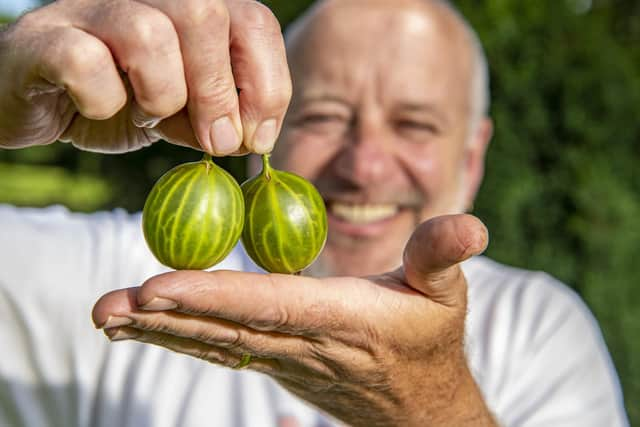

"For 221 years now people have been getting together to see who has the biggest gooseberry," said society secretary Ian Woodcock. "Our arrangements are simple, it's all systems go."
The Egton Bridge Old Gooseberry Society, in the heart of the North York Moors, can trace its roots back as far as the year 1800.
The earliest results are recorded from around 1825, with the winning weight around half of what todays' berries deliver.
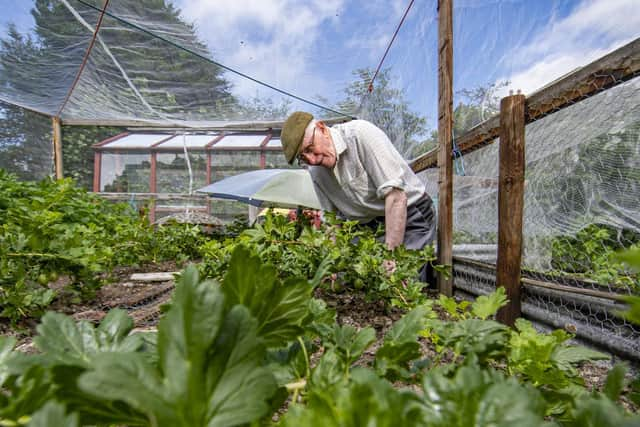

Advertisement
Hide AdAdvertisement
Hide AdGraeme Watson from Ainthorpe is the reigning champion. His 'once-in-a-lifetime' fruit in 2019 was described as the "holy grail" of gooseberries. It weighed in at 64.56g, to set a new world record.
"It was a great moment," said the 61-year former Danby postman and retained firefighter. "I'd given up hope of getting anywhere near."
There is no secret to growing, he insists, it’s merely a matter of attention to detail and giving the berries what they need and at the right time.
"You find yourself setting up umbrellas for them if it rains,” he said. “It’s little things like that, and a little luck."
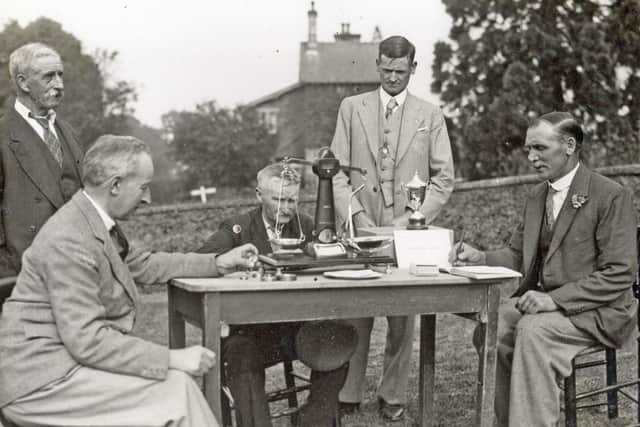

Difficult growing conditions
Advertisement
Hide AdAdvertisement
Hide AdBryan Nellist took a world record in 2009. He has been growing gooseberries for 65 years.
This year has seen difficult growing conditions with late frosts, the 85-year-old from Egton Bridge reflected, and it is impossible to tell how his berries will fare before Tuesday.
"It's been a late year and they're bigger when they're riper," he said. "But then having fewer berries means the goodness doesn't have to go into too many.
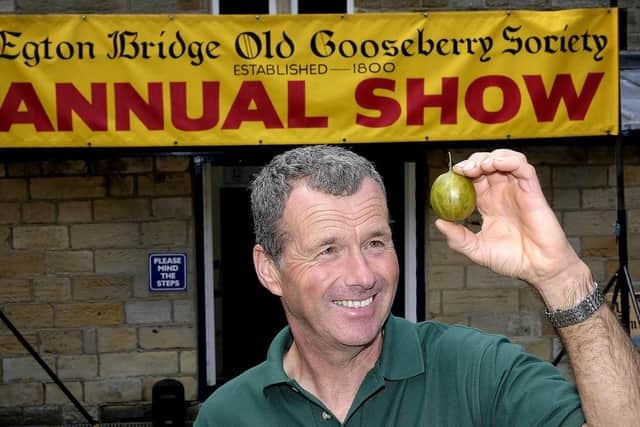

"I'm not very hopeful, but you never know your luck until the day."
Advertisement
Hide AdAdvertisement
Hide AdThere were once close to 180 such gooseberry shows across Yorkshire and Lancashire, Mr Woodcock said, which were popular among mill workers in particular.
Their names can be traced through the Gooseberry Growing Register, but the arrival of the First World War was to signal a rapid decline.
The 'forgotten fruit'
Today there are just two societies left in England, with the other in Cheshire, although one in Sweden has more recently sprung up, inspired by Egton Bridge's ideas.
Gooseberries, as the 'forgotten fruit', aren't as popular as they once were, believes Mr Woodcock.
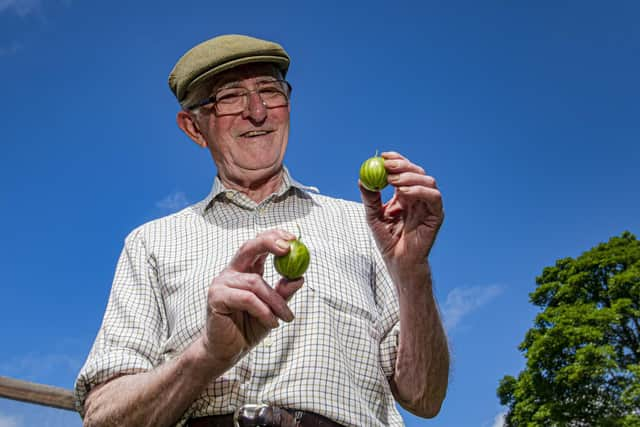

Advertisement
Hide AdAdvertisement
Hide Ad"Some people say they are too tart," he said. "I say they are just eating them wrong. And you've got to get the timing just right. As with any fruit, the fewer berries on the bush, they bigger they grow."
Continuing for 221 years and despite two world wars, the Egton Bridge Show had only ever been cancelled for foot and mouth until last summer, and now returns on Tuesday to St
Hedda’s School room.
Competition rules
The rules are simple, with competitions for four colours of berry. There are wins for twins, for the heaviest six and weightiest dozen, and a points system in place for totals.
Top prize is for the single biggest gooseberry. The antique scales, from 1937, are so fine they can weigh a white feather that sits in its box, and measures in drams and grains.
Advertisement
Hide AdAdvertisement
Hide Ad"It's not like the leagues, it's not unduly competitive," said Mr Woodcock of competitors' entries. And when it comes to traditions, he is keen to see it continue.
"I can look back, through all the records, and see all the names," he said. "One day I will pass that on. There used to be lists of all the shows, and now they're all gone.
"We have a set of the rules from the early 1800s, and apart from the language everything is the same," he added. "I'm not sure it has changed, in living history."
______________________________________________________________________
Advertisement
Hide AdAdvertisement
Hide AdSupport The Yorkshire Post and become a subscriber today. Your subscription will help us to continue to bring quality news to the people of Yorkshire. In return, you'll see fewer ads on site, get free access to our app and receive exclusive members-only offers. Click here to subscribe.
